‘Dramatic moment’: What it was like inside the banking royal commission whirlwind
There were many shocking moments in the banking royal commission but one of the most dramatic resulted in a dash to hospital. Five years on, we take you behind the scenes of the inquiry and what’s changed since.
Banking
Don't miss out on the headlines from Banking. Followed categories will be added to My News.
The witness gasped for air and collapsed.
It was late on a Thursday during Kenneth Hayne’s whirlwind banking royal commission, and the former High Court judge had financial adviser Terry McMaster in the stand.
McMaster, who ran a South Australian advice shop called Dover, had been giving evidence for more than two hours and I’d popped down from the hearing room to the media room in the dungeon below the Commonwealth Law Courts in Melbourne to help sort out our coverage for the next day.

So I missed what was the most dramatic moment of the banking royal commission – McMaster crumpling in the stand after counsel assisting Mark Costello accused him of lying during the hearing.
“Adjourn and call an ambulance,” Hayne said. “Get an ambulance pronto. Move.”
The 30 or so of us who covered the hearings trooped out the front of the building, the same place where every morning and afternoon finance executives trudged in and out through a thicket of newspaper and TV cameras while dodging questions from the ABC’s Danny Ziffer.
Amid clicking cameras, McMaster, sitting upright on a gurney and smiling wanly, was loaded into the back of a waiting ambulance and driven away.
His was the most literal collapse caused by Hayne’s hearings, a breakneck 68-day survey of (almost) everything wrong with the financial services industry.
But it certainly wasn’t the only one. High-profile financial planner Sam Henderson entered the hearing room full of piss and wind one morning, barging his way past the media in the back row of courtroom 4A while sporting what looked suspiciously like a full face of TV makeup.
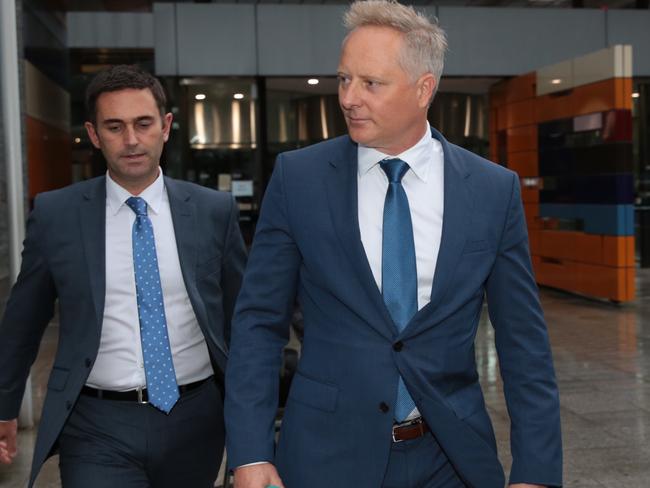
By the time he departed, after a session in which he admitted he didn’t hold a claimed Masters in Commerce and heard a tape of a staff member impersonating a client who happened to be a quasi-judicial officer, he’d been stripped of his regular gigs on Sky Business and in the pages of the Financial Review.
He went on to lose his financial services licence and gain a criminal conviction for dishonest conduct, and was last seen flogging Christmas hampers.
Others were laid low in more subtle ways.
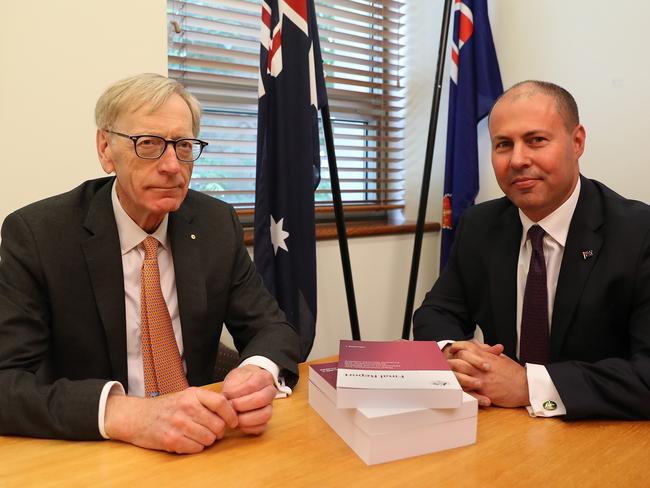
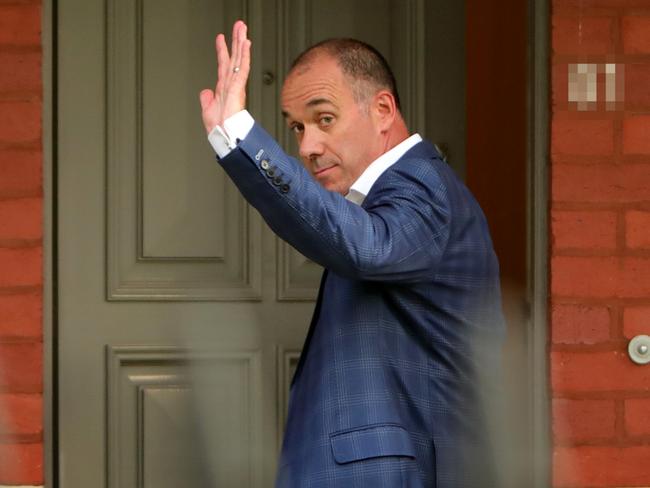
Andrew Thorburn resigned as chief executive of National Australia Bank in February 2019, after Hayne handed his final report to Josh Frydenberg at an extremely uncomfortable photo op in Canberra during which the commissioner famously refused to shake the then-treasurer’s hand.
NAB chairman and former Treasury secretary Ken Henry also quit, tarred by a performance in the witness stand that gobsmacked the press pack with its arrogance.
The bank itself took a well-deserved beating during the hearings. Its wrongdoings were many and serious, including charging fees to dead people, and it didn’t help itself by taking an extremely aggressive approach to the commission that boiled over one afternoon into a full-scale showdown between Hayne and the bank’s counsel, Neil Young KC.
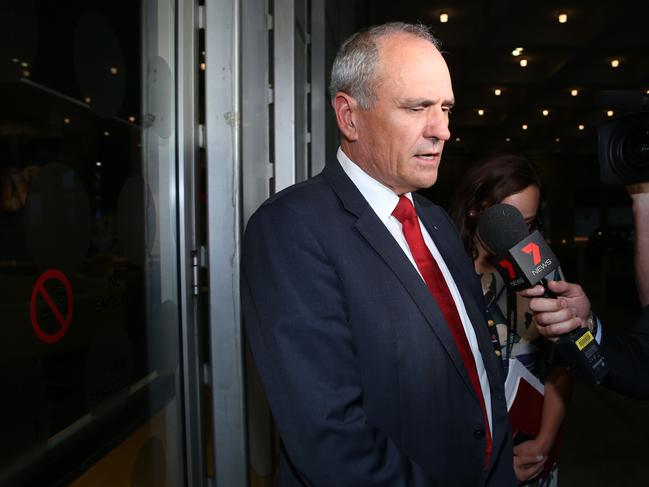
Some reputations were bolstered: AustralianSuper’s mustachioed boss, Ian Silk, sailed through a grilling over the fund’s spending on advertising and promotion, with a special focus on news website The New Daily, by applying the simple – but apparently novel – technique of listening to the questions and answering them.
The commission also made stars of some of Hayne’s counsel assisting, including Rowena Orr KC, who is now Solicitor-General for the Victorian government, and Michael Hodge KC, who these days is one of Australia’s top commercial silks.

Even some of us hacks did well. Three colleagues from the press pit – Ziffer, Michael Roddan and Annelise Nielsen – got book deals.
But, mostly, the long days were a blur of distressed victims of bank bastardry, Orr’s catchcry – “can I show you a document” – and Hayne dressing down bank lawyers who thought they could pull a swift one on him.

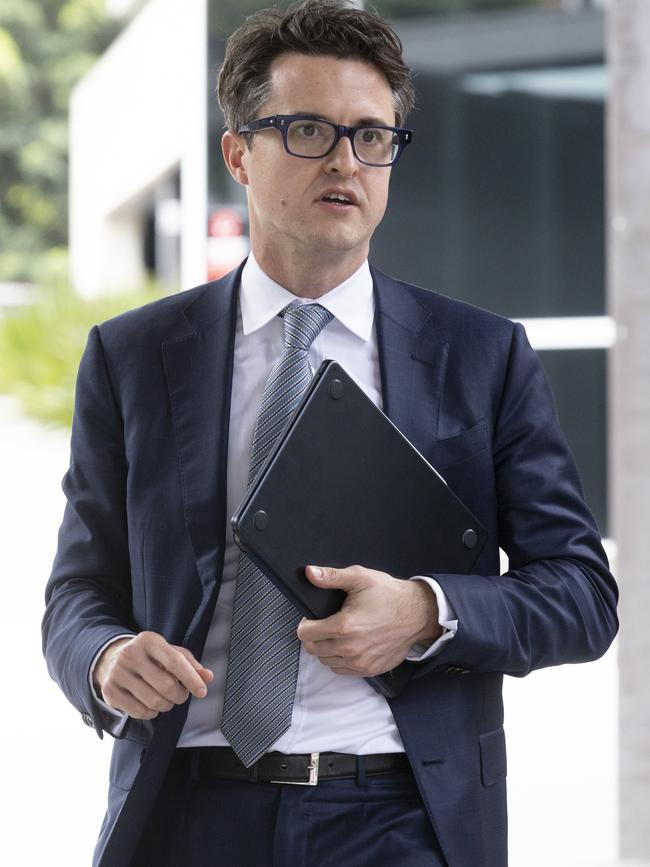
What did it accomplish? More than what the banks wanted, which was nothing at all. They’d spent years fighting the possibility of a royal commission before the weight of their misdeeds made it inevitable, at which point they shamelessly called for one.
The model where banks hoovered hapless customers into their financial advice arms and fleeced them of every dollar they could was shut down, with the big four fleeing the planning industry en masse.
A bunch of bad actors were publicly shamed and expelled from financial services, and there was law reform to stop some of the worst excesses happening again.
At Hayne’s urging the Australian Securities and Investments Commission launched a flood of investigations and litigation. Never has its head of enforcement, Tim Mullaly, looked happier.
But the outcome was less than what consumer advocates hoped for.
Law reform took ages because the Morrison government wasn’t super keen on some of the recommendations.
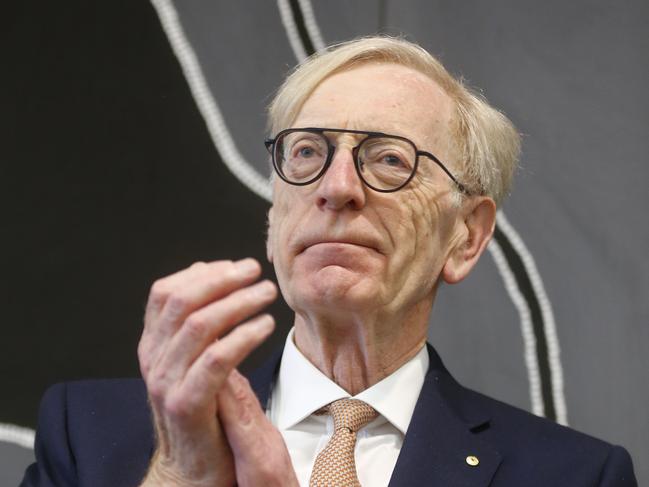
A government compensation scheme of last resort has a low cap and doesn’t cover one of the most problematic sectors, managed investment schemes.
Despite significant work by ASIC, insurance regulation remains poor, allowing the industry to continue its long historical tradition of ripping off customers.
The unreconstructed reprobates and spivs among what’s left of the financial planning industry would also like to return to the same tradition, and even now can be heard calling for a loosening of their duties towards clients.
And ASIC’s enthusiasm for litigation proved sadly short-lived, with the regulator now firmly returned to its usual cowardly ways. As for McMaster, he wrote a series of articles defending himself and sued his lawyers for bad advice, but it didn’t help.
In 2021 he was fined $240,000 and Dover $1.2m for the company’s deceptive conduct over the “client protection policy” that was at the heart of his appearance in Hayne’s witness stand.
The title of the policy was “an exercise in Orwellian doublespeak”, Federal Court judge Michael O’Bryan said.
“The document did not protect clients. To the contrary, it purported to strip clients of rights and consumer protections they enjoyed under the law.”




